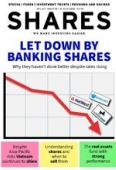Archived article
Please note that tax, investment, pension and ISA rules can change and the information and any views contained in this article may now be inaccurate.
Holiday reading for anyone who wants to learn more about investing

The summer holiday season is upon us, and those who are brave enough to be risking travel disruption in search of more exotic climes will no doubt be thinking about what reading material to pack for whiling away the hours on the beach, or in the airport departure lounge.
An engrossing bestseller will often be the order of the day, but if you don’t want to switch your brain off entirely, and would like to learn a bit about investments and markets along the way, the following books might be worth considering. It’s by no means an exhaustive list of all that financial literature has to offer so do have a scan around yourself if nothing takes your fancy. In no particular order:
LEARNING FROM LYNCH
One Up on Wall Street by Peter Lynch is a highly influential book about how ordinary investors can use their nous and a bit of research to beat the market. If you have heard the phrase ‘tenbagger’ – a stock that rises in value by ten times after purchase – this is where it comes from.
Peter Lynch was manager of the Fidelity Magellan fund between 1977 and 1990, taking the assets under management from $18 million to $14 billion at the end of his tenure, both through performance and attracting inflows.
Freakonomics by Steven Levitt and Stephen Dubner, along with The Undercover Economist by Tim Harford are both super-accessible and look at how economics and incentives, both financial and otherwise, work in everyday life. Tim Harford also presents the BBC radio show and podcast More or Less, which is worth dipping into if you’re interested in everyday statistics.
To give you a flavour, my favourite snippet from Freakonomics was the story of the child day care centre which had a problem with parents picking their children up late. They decided to fine parents $5 each time they didn’t turn up to collect their child promptly, and were shocked to find the number of parents showing up late increased significantly. The $5 fine actually relieved parents of the guilt of turning up late, as they’d effectively paid for more day care, which demonstrates that financial motives are not the only ones which dictate human behaviour.
Two companion books which are eminently digestible are Joel Greenblatt’s The Little Book That Beats the Market and John Bogle’s Little Book of Common Sense Investing.
Greenblatt is a renowned US active fund manager who shares his secrets about how to beat the market, while John Bogle was the founder of the asset manager Vanguard, who explained why the most effective way to build wealth is by investing in low-cost index funds. Two very contrasting takes, which reinforces the old adage that it takes two views to make a market.
A NO-NONSENSE DIY GUIDE
If you’re looking for a no-nonsense, self-help guide to saving and investing in the UK, then look no further than The DIY Investor, by AJ Bell’s (AJB) founder, Andy Bell. The book proceeds through the concrete steps you can take to get in control of your personal finances, and to build a portfolio while keeping costs and taxes in check. Jargon is unapologetically busted, and the complexities of financial products simplified. It’s a book you can return to again and again to keep your personal finances on track.
I reckon you can pick up anything by Michael Lewis and you’ll be utterly engrossed, but my pick of the litter would be Liar’s Poker. You won’t learn too much that’s tangibly useful in your day-to-day investing life, but it gives a real historical insight into 1980s Wall Street, and reads like a Michael Crichton thriller.
It documents the toxic culture of the Wall Street investment bank, Salomon Brothers, and in particular the excesses of its bond trading desk. It’s an eye-opening, first-hand account of some truly despicable behaviour, and a cautionary tale of what happens when unchecked greed is the only game in town.
John Meriwether, one of the Wall Street bond traders from Liar’s Poker, shows up in Roger Lowenstein’s When Genius Failed, a more sober but nonetheless fascinating story of the collapse of the hedge fund Long Term Capital Management.
Built and run by Meriwether and a couple of Nobel prize-winning economists, the demise of this fund almost brought financial markets to their knees, and required the US government to step in and organise a bailout. It’s a cautionary tale of why academic brilliance doesn’t necessarily translate into investment success, particularly when it’s combined with complexity, leverage, and hubris.
A BIT OF BUFFETT
Finally it would be remiss of me not to mention the world’s most famous investor, Warren Buffett, about whom so much has been written. If you want to hear things from the horse’s mouth though, The Essays of Warren Buffett is a wide-ranging and insightful read, though the title leaves a lot to be desired. For those who want a more personal insight into what makes Buffett tick, Alice Schroeder’s biography The Snowball might go well with a Pina Colada on the beach.
DISCLAIMER: Financial services company AJ Bell referenced in this article owns Shares magazine. Tom Sieber who edited this article owns shares in AJ Bell.
Important information:
These articles are provided by Shares magazine which is published by AJ Bell Media, a part of AJ Bell. Shares is not written by AJ Bell.
Shares is provided for your general information and use and is not a personal recommendation to invest. It is not intended to be relied upon by you in making or not making any investment decisions. The investments referred to in these articles will not be suitable for all investors. If in doubt please seek appropriate independent financial advice.
Investors acting on the information in these articles do so at their own risk and AJ Bell Media and its staff do not accept liability for losses suffered by investors as a result of their investment decisions.
Issue contents
Education
Feature
Great Ideas
News
- Profit warnings galore as companies struggle with higher costs and lower demand
- Find out why consumer health group Haleon’s debut fell flat
- Investors are rushing to exit funds as small cap specialists really suffer
- Wealth preserver Ruffer warns bear market is ‘only mid grizzle’
- Fevertree’s earnings forecasts slashed by nearly 50% after problems get worse
 magazine
magazine








